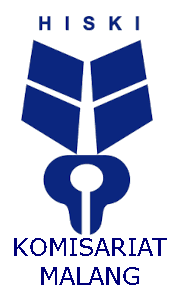SASTRA ANAK DAN PERUBAHAN KONSEP CHILDHOOD DI INDONESIA
Abstract
Sastra anak merupakan bagian dari pertumbuhan dan perkembangan anak. Dengan melihat sejarah sastra anak Indonesia kita bisa menelusuri perubahan cara pandang masyarakat terhadap anak dan masa kanak-kanak serta kebiasaan membaca anak dari masa ke masa. Penelitian ini bertujuan untuk menyusun sejarah buku anak yang pernah beredar di Indonesia sejak masa kolonial Belanda hingga saat ini di era digital. Penelitian ini merupakan studi pustaka yang dilengkapi dengan pengumpulan data lapangan melalui visual etnografi untuk mencatat buku-buku anak karya penulis Indonesia yang masih bisa ditemukan.
References
Bordieu, P. (1984). Distinction: A Social Critique of the Judgement of Taste. Translated by Richard Nice. Harvard Univerity Press.
Bunanta, M. (1998). Problematika Penulisan Cerita Rakyat: Untuk Anak Di Indonesia. Balai Pustaka.
———. (2021). Berkelana Lewat Buku: Kisah Tujuh Penulis. Bestari.
Christantiowati. (1996). Bacaan Anak Indonesia Tempo Doeloe. Balai Pustaka.
Cook, D. T., ed. (2020). Children and Childhood Studies. 1st ed. Sage Publication.
Hunt, P., ed. (2005). Understanding Children’s Literature. 2nd ed. Routledge.
Indarwaty, H. (2013). Nilai Sosial Dalam Keluarga Cemara Karya Arswendo Atmowiloto dan Little House Karya Laura Ingalls Wilder: Kajian Perbandingan Sastra Anak. (Unpublished Thesis). Gadjah Mada University.
Lesnik-Oberstein, K. (1999). Essentials: What Is Children’s Literature? What Is Childhood? Routledge.
Nodelman, P. (2008). The Hidden Adult: Defining Children’s Literature. The Johns Hopkins University press.
O’Sullivan, E. (2005). Comparative Children’s Literature. Routledge: Original work published 2000.
Setyaningsih. (2021). Buku Kitab Cerita: Esai-Esai Anak Dan Cerita. 2. Babon.
Trimansyah, B. (1999). Cerita Anak Indonesia Kontemporer: Dunia Sastra Yang Terpinggirkan. Cet.1. Yayasan Nuansa Cendekia.
Zonardo, J. (2006). Inventing the Child: Culture, Ideology, and the Story of Childhood Children Literature and Culture. 1st ed. Routledge.
Copyright (c) 2023 Jurnal Pembelajaran Sastra

This work is licensed under a Creative Commons Attribution-NonCommercial-NoDerivatives 4.0 International License.
The Authors submitting a manuscript do so on the understanding that if accepted for publication, copyright of the article shall be assigned to Jurnal Pembelajaran Sastra (Journal of Literary Education) as publisher of the journal, and the author also holds the copyright without restriction.
Copyright encompasses exclusive rights to reproduce and deliver the article in all form and media, including reprints, photographs, microfilms and any other similar reproductions, as well as translations. The reproduction of any part of this journal, its storage in databases and its transmission by any form or media, such as electronic, electrostatic and mechanical copies, photocopies, recordings, magnetic media, etc. , are allowed with a written permission from Jurnal Pembelajaran Sastra (Journal of Literary Education).
Jurnal Pembelajaran Sastra (Journal of Literary Education), the Editors and the Advisory International Editorial Board make every effort to ensure that no wrong or misleading data, opinions or statements be published in the journal. In any way, the contents of the articles and advertisements published in the Jurnal Pembelajaran Sastra (Journal of Literary Education) are sole and exclusive responsibility of their respective authors and advertisers.







